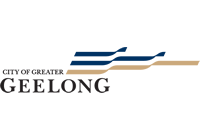By NOEL MURPHY
A MELBOURNE Cup field of candidates is looming for Geelong’s mayoral election in November.
Nominations open next month but the field of potential candidates is building, with close to a dozen eyeing the post, fielding requests to stand and weighing their options.
The $177,000-a-year job, which Keith Fagg vacated on health grounds after 10 months, will go to a public postal vote on 23 November, with the winner to be announced days after.
Former mayors John Mitchell, Ed Coppe and Ken Jarvis have flagged interest as well as councillor Jock Irvine and former City Hall officer Stephen Yewdell.
Unsuccessful candidates from last year’s inaugural direct mayoral election – Ron Watt, Sue Bull and Stephanie Asher – could also nominate.
High-profile paparazzi/media celebrity and local businessman Darryn Lyons has cited interest, while failed federal independent candidate for Corangamite Buddy Rojek has made his mayoral aspirations clear on social media and the streets.
The election will cost ratepayers $500,000, with another by-election required to fill Ausin Ward if Cr Irvine is successful.
Mr Fagg’s unexpected resignation exposed problems reconciling public expectations of a directly-elected mayor with the fact the role has little more power than that held by an ordinary councillor.
Mr Coppe told the Independent Geelong made a “great breakthrough” in persuading the State Government to allow a direct mayor but argued the model needed change.
“I think that’s clear to everyone,” he said.
“There’s no point voting in a mayor with, say, seven priorities and he or she is only one councillor and other councillors don’t share their priorities.
“I think there’s a very big argument to change the model.”
Mr Lyons said whoever became mayor could lead Geelong through an important transition period, helping business and employment and advocating strongly for a greater share of state and federal funding to the city.
Ms Bull was waiting on the nod from her Socialist Alliance party colleagues but argued council needed to adopt a stronger role in public transport, local sport, public consultation and areas traditionally deemed state or federal concerns.







